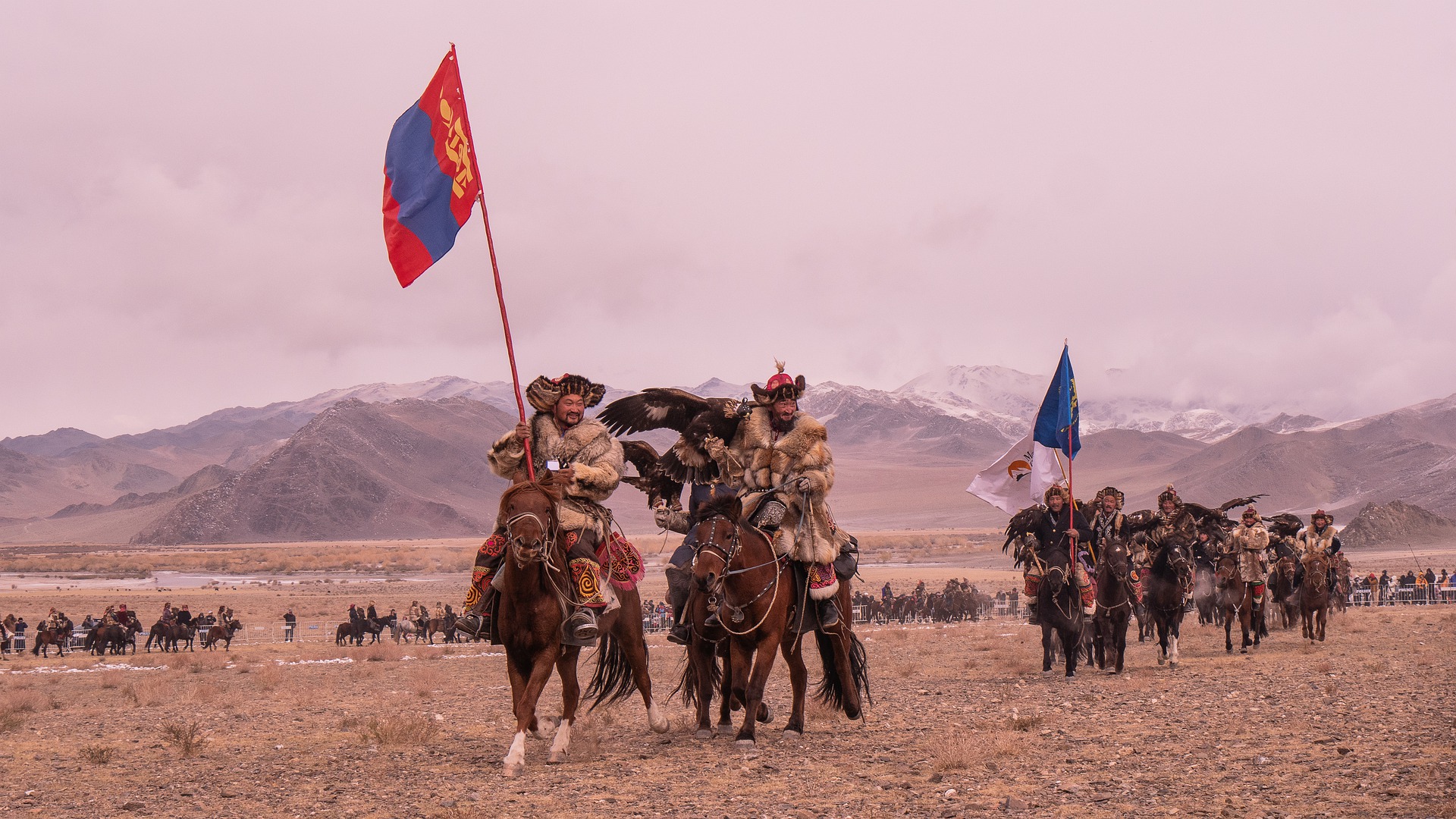Nestled deep within the picturesque Bayan-Ölgii province of Mongolia, the Sagsai Golden Eagle Festival promises an immersive adventure into the world of Kazakh eagle hunters. This unique festival spans two days, each offering a different facet of this remarkable cultural experience. In this blog, we’ll guide you through the highlights of both days, from immersing yourself in nomadic culture to witnessing exhilarating eagle hunting competitions and a variety of traditional events.
Sagsai Golden Eagle Festival Day 1: Embracing Nomadic Culture
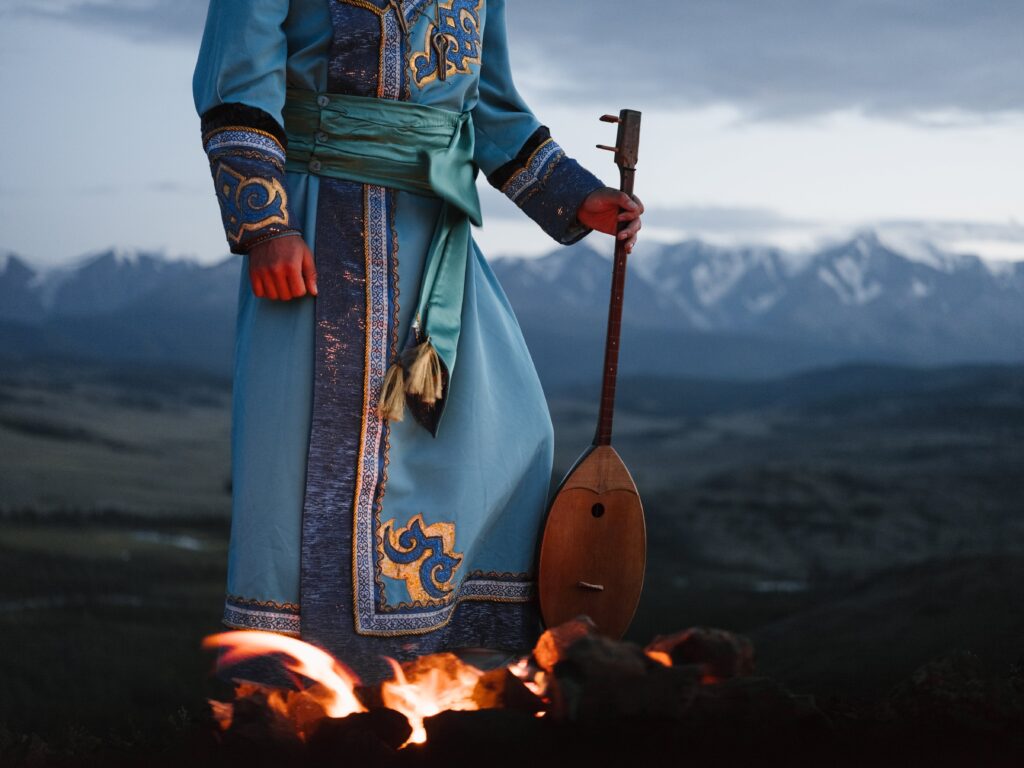
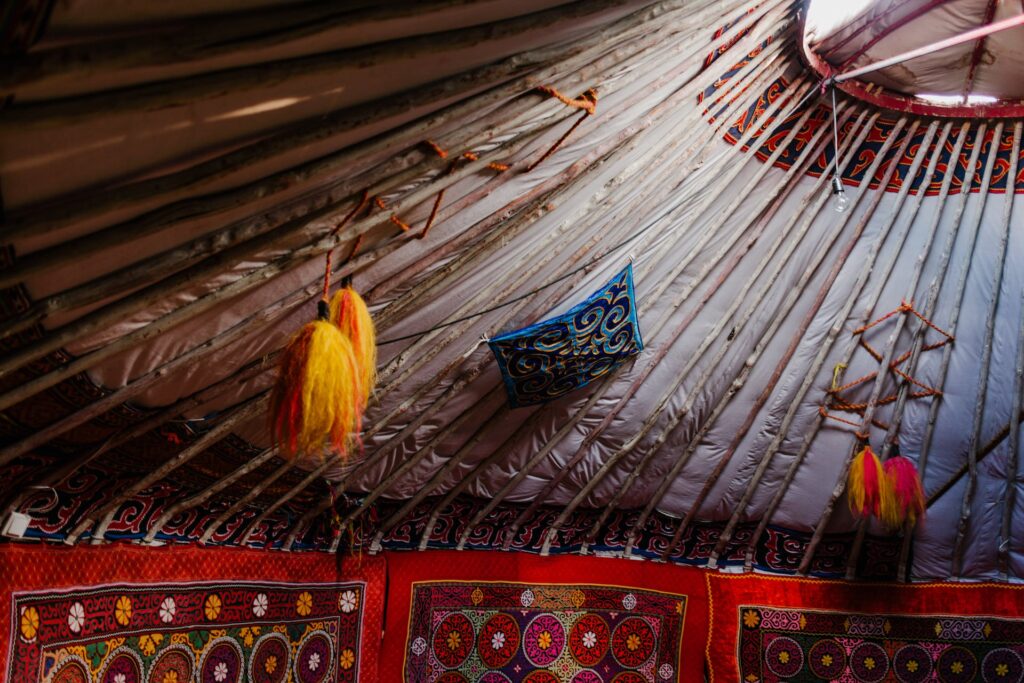
Assembly of Kazakh Ger (Yurt):
The first day of the festival begins with a fascinating showcase of nomadic life. Witness skilled craftsmen as they expertly assemble Kazakh Gers, the traditional nomadic dwellings. These portable homes have been an integral part of the Kazakh way of life for generations. The assembly process reflects the efficiency and craftsmanship required to thrive in the challenging Mongolian wilderness.
Migration of Nomadic Family:
Another highlight of the first day is the Migration of a nomadic family. Join a Kazakh family on their journey from summer pastures to their winter eagle hunting grounds. As you witness the harmonious coordination of horses, camels, yaks, and beloved Golden Eagles, you’ll gain an intimate understanding of their nomadic lifestyle and heritage.
Cultural Immersion:
Throughout the day, immerse yourself in the rich nomadic culture of the Kazakh eagle hunters. Engage with the locals, hear their stories, and share meals that reflect the flavors of their traditional cuisine. This is a unique opportunity to forge connections with people who have dedicated their lives to preserving their ancestral way of life.
Traditional Kazakh Cuisine:
Indulge in the hearty flavors of traditional Kazakh cuisine, which tells the story of survival and resilience in the vast Mongolian wilderness. Sample dishes like beshbarmak (meat and noodle stew) and quench your thirst with kumis (fermented mare’s milk), all while experiencing the essence of nomadic hospitality.
Cultural Performances:
The first day also features vibrant cultural performances, including traditional music, dances, and storytelling. These performances offer a deeper connection to the nomadic way of life and provide insights into the rich heritage of the Kazakh people.
Sagsai Golden Eagle Festival Day 2: Thrilling Competitions
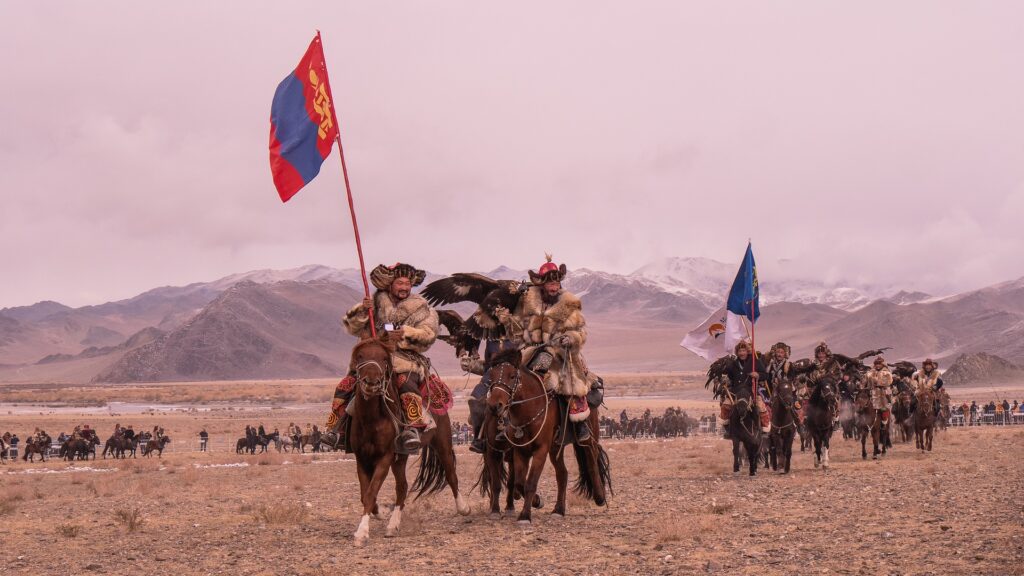
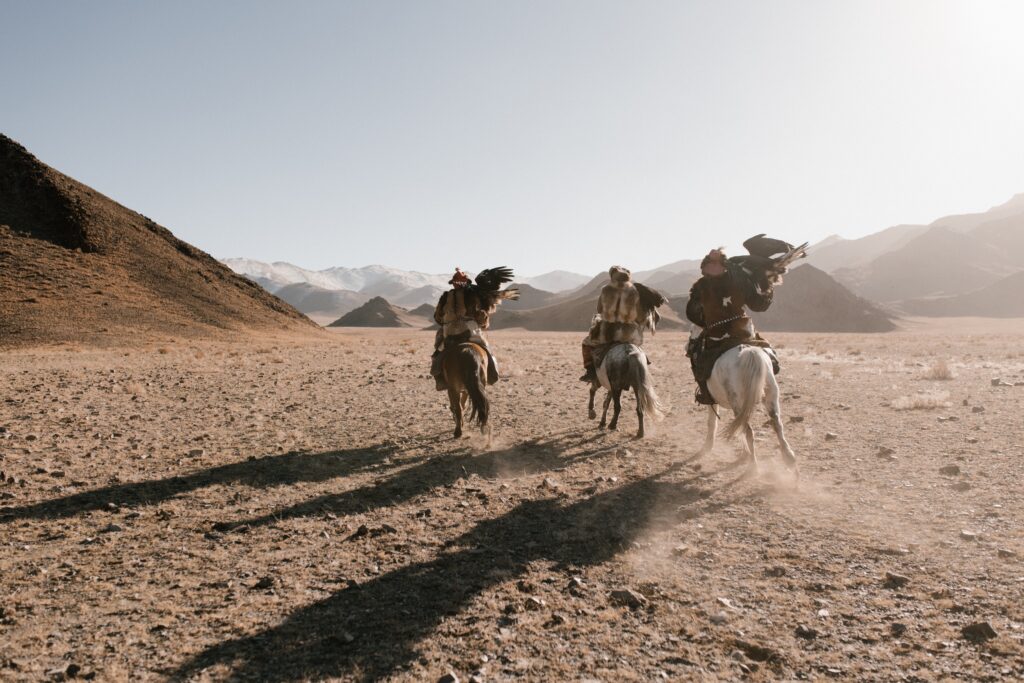
Opening Parades:
The second day of the festival kicks off with lively opening parades that set the stage for a day filled with thrilling competitions and traditional events.
Eagle Hunting Competitions:
This is the day you’ve been waiting for – the eagle hunting competitions. Watch in awe as the eagle hunters demonstrate their skills, releasing their eagles from the mountain’s summit. Points are awarded for speed and gripping ability as the eagles land on their master’s hands. Witness the exhilarating chase as the eagles pursue fox skins dragged by their masters on horseback.
Additional Traditional Events:
Beyond the eagle hunting competitions, the day is packed with traditional events that showcase the prowess, agility, and heritage of the Kazakh people. These include Tenge-Ilu (Coin grabbing while riding a horse), the best costume competition, Kokbar (Thug of War), and Kizkhuar (Traditional Kazakh Couples Game).
Festival Winners Announced:
The day culminates in the announcement of the festival winners during the closing ceremony, where the most skilled eagle hunters and participants in various competitions are recognized and celebrated.
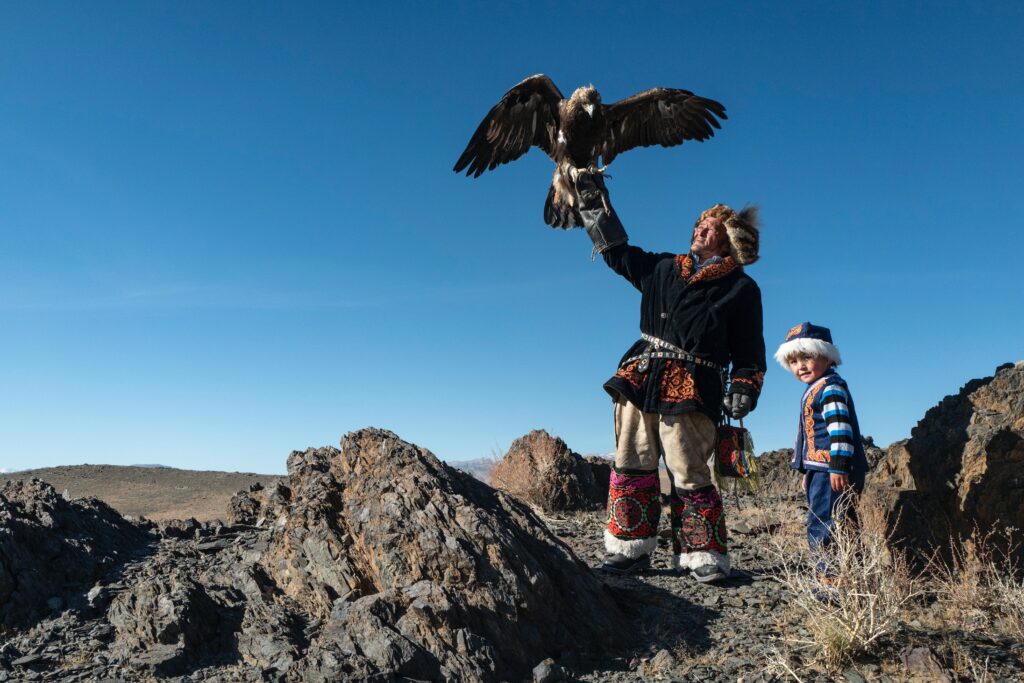
Conclusion:
The Sagsai Golden Eagle Festival is a two-day journey into the heart of nomadic traditions, offering a blend of cultural immersion and thrilling competitions. Whether you’re captivated by the assembly of Kazakh Gers, the migration of nomadic families, or the pulse-pounding eagle hunting contests, this festival promises an unforgettable adventure that honors the resilience and heritage of the Kazakh eagle hunters. Come and be part of this extraordinary celebration, and you’ll leave with cherished memories and a profound appreciation for Mongolia’s unique cultural tapestry.

